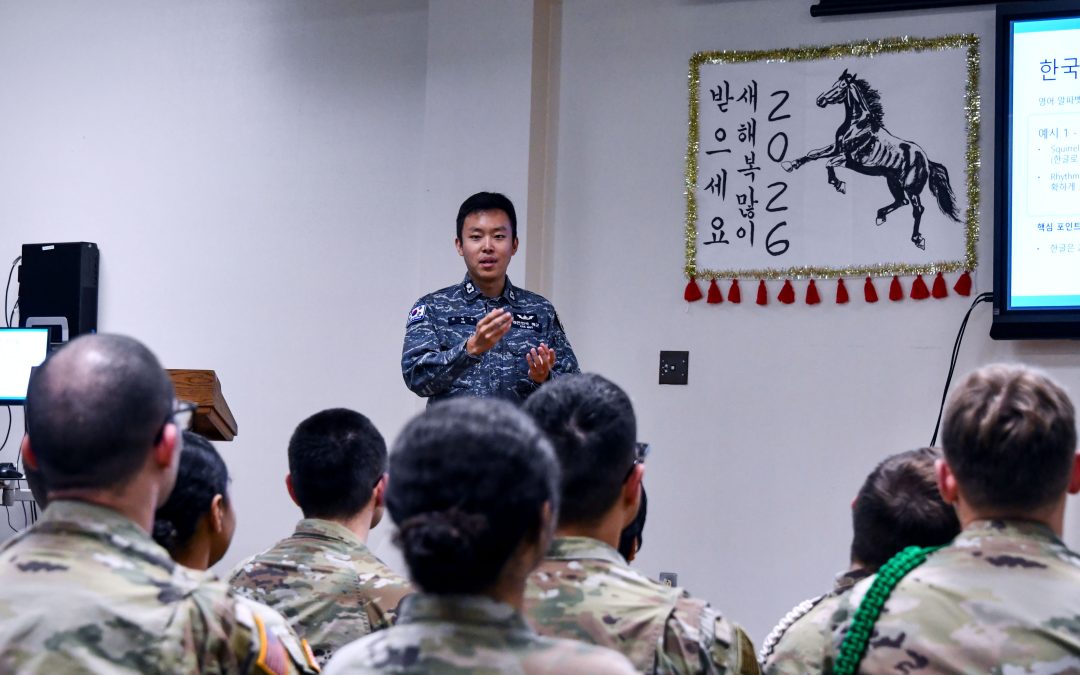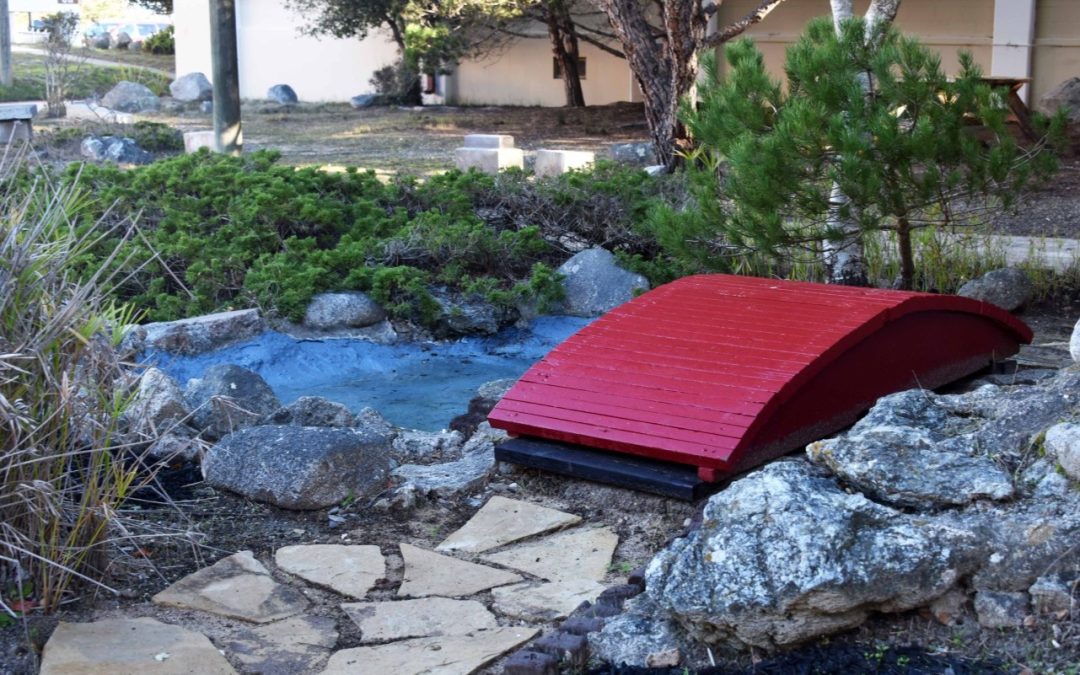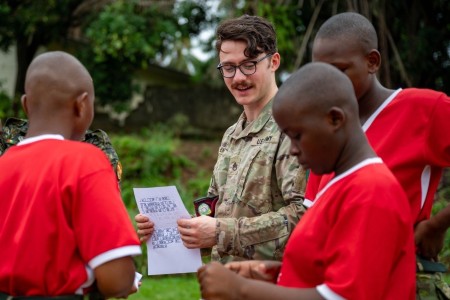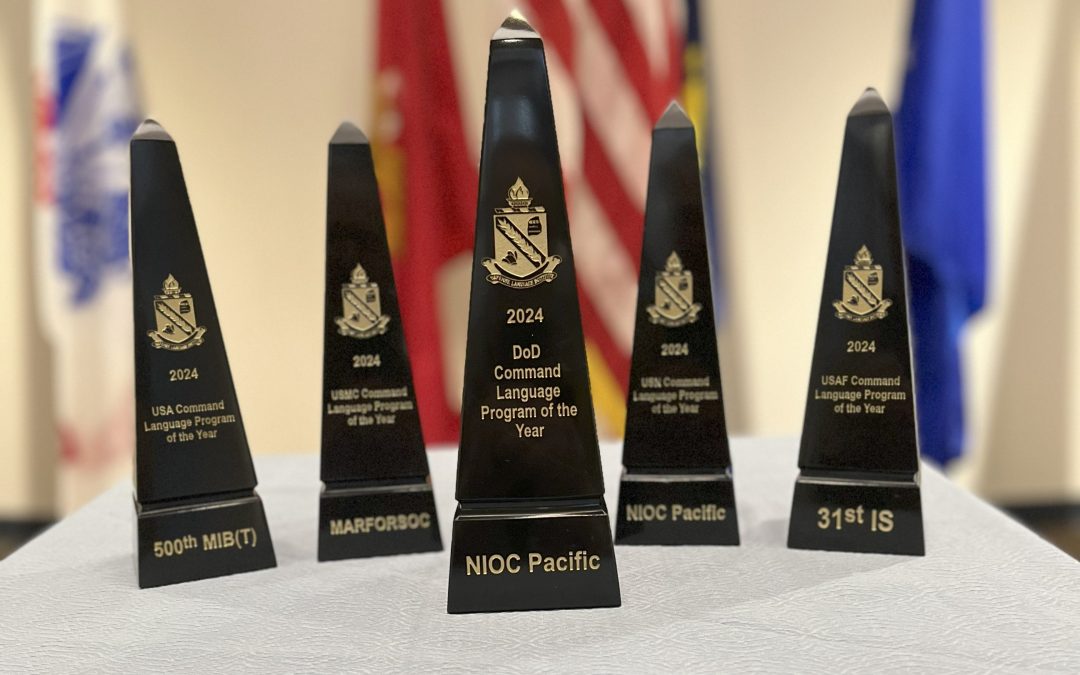By Patrick Bray
DLIFLC Public Affairs
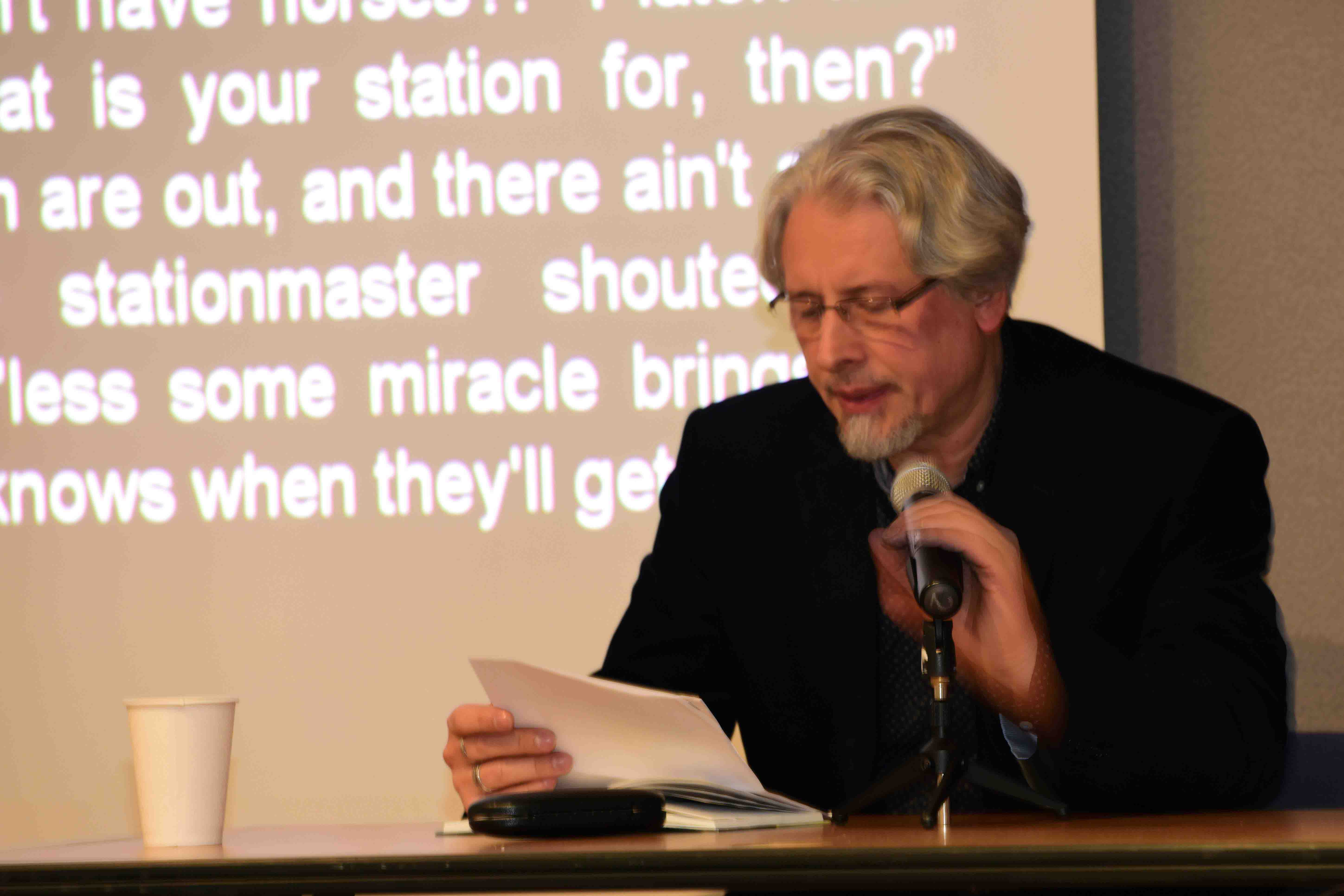
Students of advanced Russian had a rare opportunity to experience a lecture Jan. 22 given by world renowned Russian author Vladimir Sorokin who presented his most recent work, the Blizzard, at the Defense Language Institute Foreign Language Center’s Continuing Education Directorate in Seaside, California. (Photo by Patrick Bray, DLIFLC Public Affairs)
MONTEREY, Calif. – Students of advanced Russian had a rare opportunity to experience a lecture Jan. 22 given by world renowned Russian author Vladimir Sorokin who presented his most recent work, the Blizzard, at the Defense Language Institute Foreign Language Center’s Continuing Education Directorate in Seaside, California.
“It was just an amazing experience to have the opportunity to listen to such beautiful language,” said Irene Krasner, a professor of Russian language at DLIFLC, referring to the author’s most recent novel. “Sorokin is one of Russia’s most celebrated writers and we are thrilled to have had the chance to hear him speak.”
For the students, who are part of the Defense Threat Reduction Agency Interpreting Course, this was an opportunity to practice interpretation for non-Russian speaking participants. To make the task even more difficult, interpreters had to translate metaphors into plain speech, a feat in and of itself, as Russian literature is well known for its intricate literary expressions.
Considered by many to be Russia’s leading postmodern author and dramatist, Sorokin described his book as full of metaphysical concepts related to time and space and in the midst of his presentation jumped up to draw a snowmobile to illustrate his points.
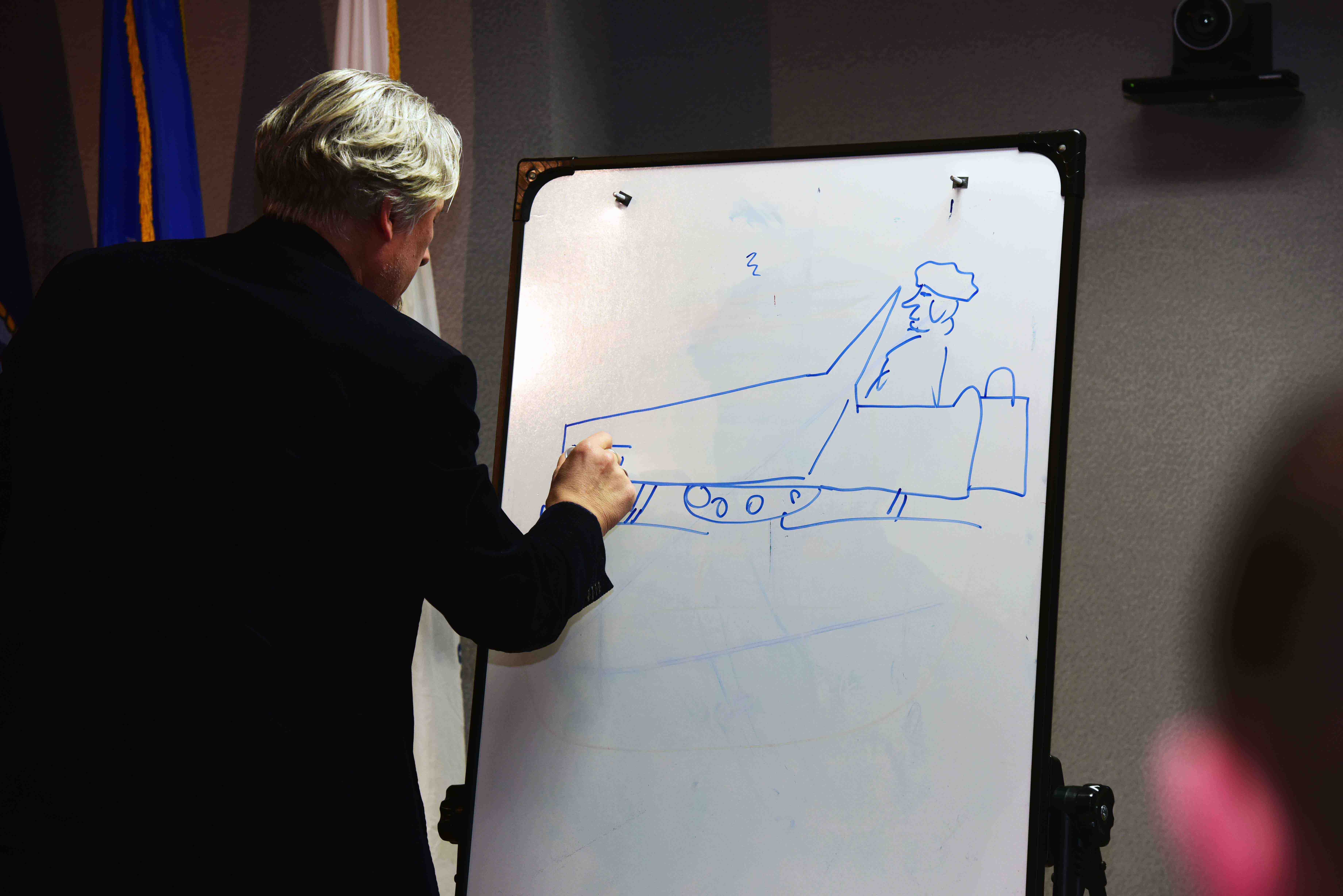
“A snowmobile is a transportation device, but in Russia in the winter it can also be used for time travel,” said Vladimir Sorokin in Russian. Students of advanced Russian had a rare opportunity to experience a lecture Jan. 22 given by this world renowned Russian author who presented his most recent work, the Blizzard, at the Defense Language Institute Foreign Language Center’s Continuing Education Directorate in Seaside, California. (Photo by Patrick Bray, DLIFLC Public Affairs)
“A snowmobile is a transportation device, but in Russia in the winter it can also be used for time travel,” said Sorokin in Russian.
Sorokin said the idea for the book came to him as a result of a childhood experience when visiting his grandfather. One day, they traveled out of the village and into the forest when they became stuck in a blizzard. They broke down their sled for wood and burned it to keep warm through the night. The next day, when the blizzard had passed, they could see the village right before them.
“That is the danger of a blizzard,” said Sorokin, who characterizes the feeling of being lost, stalled or stuck metaphorically through the blizzard.
There are three main characters in the book and each is in some way affected by the blizzard. Garin, a doctor, is attempting to reach a village plagued by an epidemic, but he is slowed and stopped extensively throughout his journey by the blizzard, all of which should have been no longer than a couple of hours.
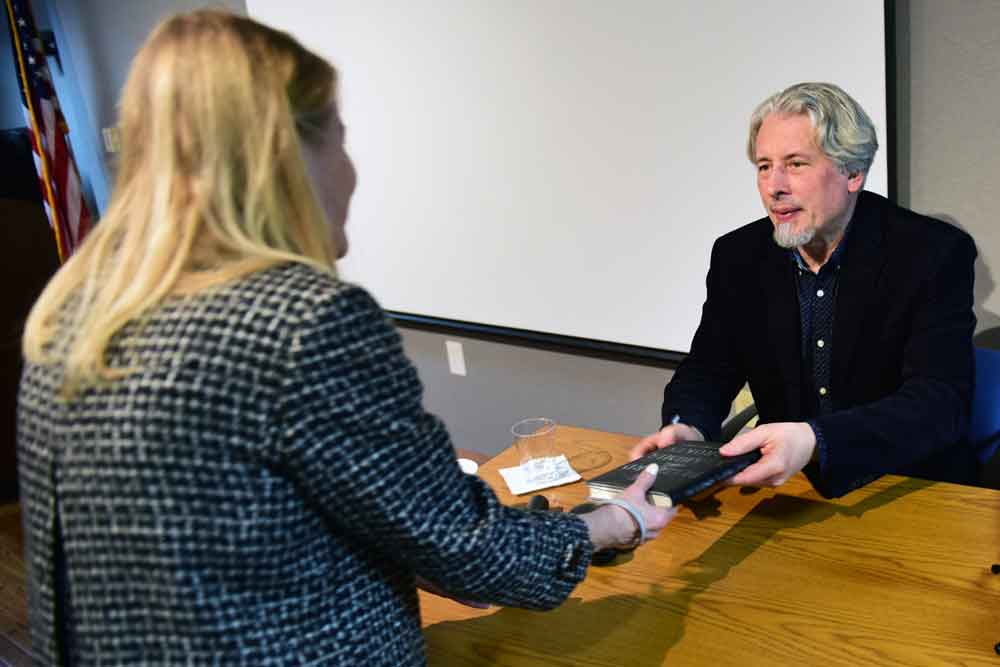
Students of advanced Russian had a rare opportunity to experience a lecture Jan. 22 given by world renowned Russian author Vladimir Sorokin who presented his most recent work, the Blizzard, at the Defense Language Institute Foreign Language Center’s Continuing Education Directorate in Seaside, California. (Photo by Patrick Bray, DLIFLC Public Affairs)
Sorokin is one of Russia’s leading post-Soviet authors who has sought to redefine Russian literature, having developed as an artist, illustrator and writer as part of the Moscow underground art and literary scene of the 1980s. His earliest works were banned during the Soviet period, but his articles were published abroad. By the 1990’s, Sorokin’s short stories began appearing in Russian magazines and he began winning recognition.
Well known as a critic of the regime of Russian President Vladimir Putin, Sorokin had one of his books banned in 2002. Many of his books have been translated into as many as 25 languages, the author said.
Sorokin admits that he is unsure about what direction Russian literature will move next. He took questions from students and faculty, mostly about how Russian literature is changing.
“Life moves faster than literature,” said Sorokin. “For example, War and Peace was written 50 years after the war,” he said, referring to Leo Tolstoy’s epic novel written in 1869 which is often characterized as realist fiction, something that Sorokin is also known for.
“Russia is always changing. It always has,” said Sorokin.
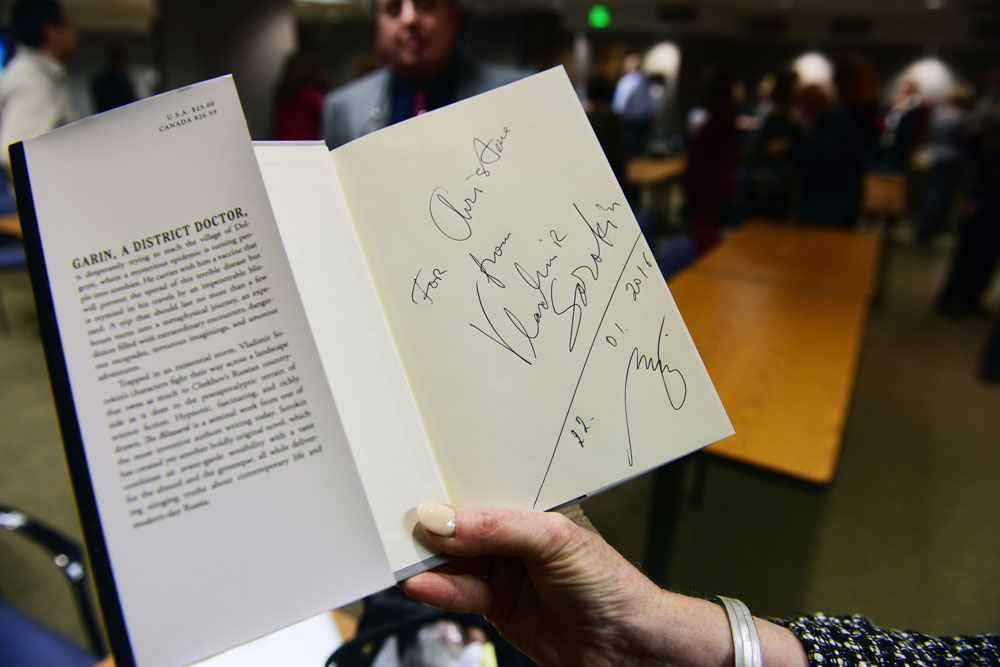
Students of advanced Russian had a rare opportunity to experience a lecture Jan. 22 given by world renowned Russian author Vladimir Sorokin who presented his most recent work, the Blizzard, at the Defense Language Institute Foreign Language Center’s Continuing Education Directorate in Seaside, California. (Photo by Patrick Bray, DLIFLC Public Affairs)
The DTRA Interpreting Course trains Russian linguists to be interpreters to potentially assist on issues related to arms reduction treaties between the U.S. and Russia.
After World War II and the dawn of the Cold War, DLIFLC, then the Army Language School, added Russian to the curriculum and it has been taught since.
Today, DLIFLC provides resident instruction in 23 languages with the capacity to instruct another 65 in Washington, D.C., graduating more than 230,000 linguists since 1941.

